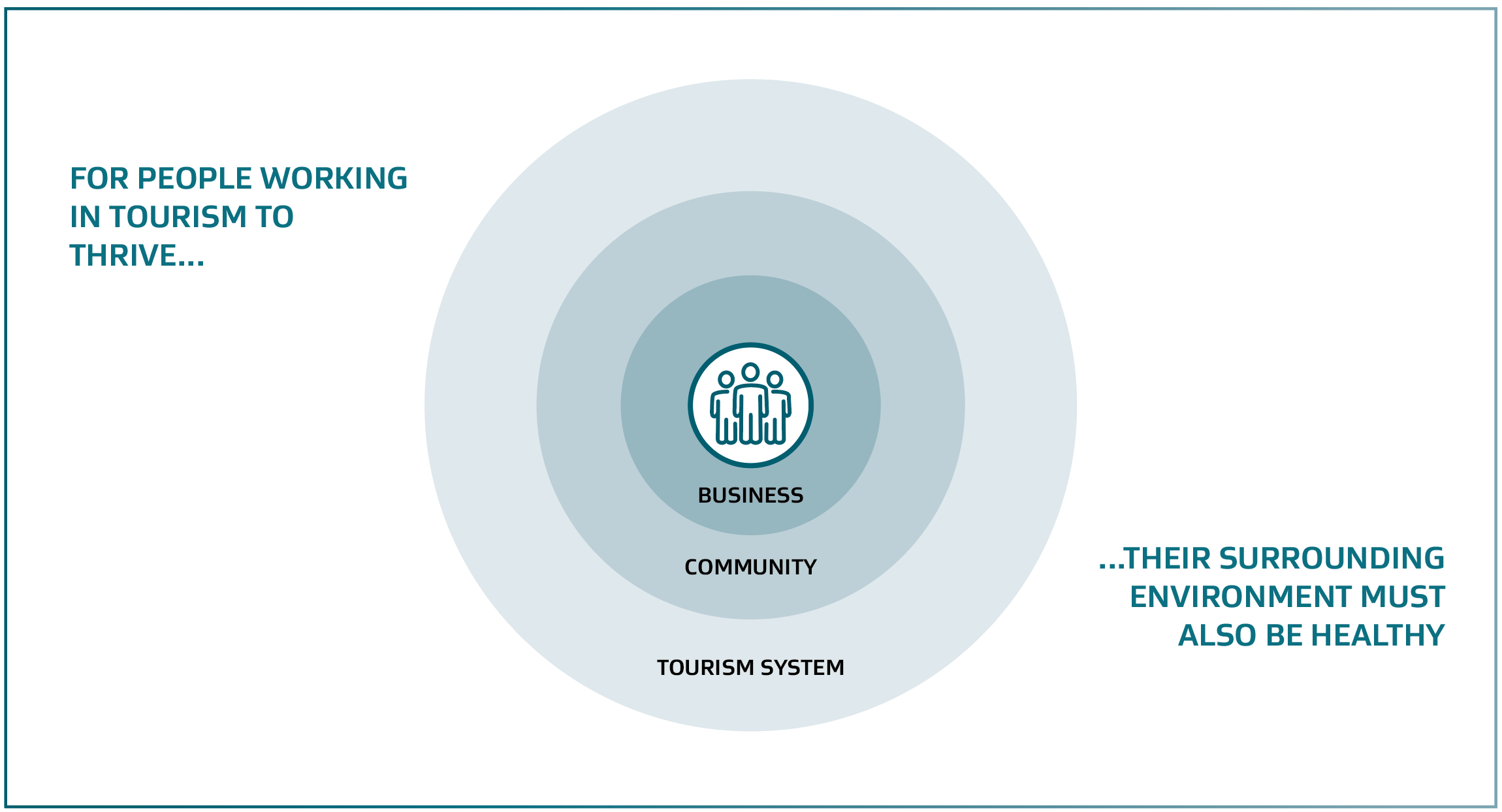Summary of Better Work Action Plan
Published: 1 Mar 2023A 2-page summary of the Better Work Action Plan.
Type
File
PDF, 348KB, 2 pages


This is a summary of the Better Work Action Plan, which aimed to address key systemic challenges affecting the tourism workforce that make it difficult for the industry to attract and retain quality employees.
This is the web version of the summary of the Better Work Action Plan. You can download the PDF version of the summary and full Better Work Action Plan below:
A 2-page summary of the Better Work Action Plan.
PDF, 348KB, 2 pages
The initiatives in the Action Plan pave the way towards Better Work for people in the tourism industry.
PDF, 4.9MB, 66 pages
The Better Work Action Plan (Action Plan) was part of the first phase of the Tourism Industry Transformation Plan that aims to transform tourism in Aotearoa New Zealand towards a regenerative model – one that gives back more than it takes from people, communities, and the environment.
The Action Plan was created in partnership and sought to address key systemic challenges affecting the tourism workforce that make it difficult for the industry to attract and retain quality employees. The initiatives in the Action Plan have sought to pave the way towards Better Work for people in the tourism industry and will help to deliver better outcomes for employees, businesses, and visitors.

Leaders from the tourism industry, unions/workers, government, and Māori worked together, as part of the Better Work Leadership Group (Leadership Group), to find these solutions, which are both practical and transformational.
The Leadership Group identified the 4 key systemic challenges for the tourism workforce as:

The seasonal nature of tourism can lead to workers lacking job security and being underutilised or overworked.
Low pay and poor conditions can be a barrier to attracting and retaining a stable workforce.
Many tourism businesses lack the scale, systems and capacity to effectively manage human resources, and to invest in workers’ training and development.
Tourism struggles to attract and retain people with the skills the industry needs, particularly from a domestic workforce, and does not sufficiently invest in training for both current and future needs.
The Action Plan contained 6 Tirohanga Hou, meaning ‘new pathways’. They are underpinned by 14 initiatives to address these challenges to bring about positive changes to the tourism industry and lead to a more regenerative, high value and resilient industry.
The establishment of a Tourism and Hospitality Accord will enable both workers and consumers to identify businesses that meet a set of voluntary standards relating to decent pay, appropriate training and career progression, and a safe and supportive work environment.
The Accord aims to ‘lift the middle’ creating a positive movement, leading directly to better work outcomes that benefit employees and employers.
There are a number of priority areas to improve the education and training system and make it more fit-for-purpose for the current and future tourism industry. A stronger channel of communication between the industry itself and the education ecosystem will support this outcome.
These changes will help equip the tourism workforce to meet the demands of a rapidly evolving industry and help deliver a regenerative tourism system.
The seasonality of tourism demand leads to fluctuations in the availability of work, across seasons, weeks and days. This can be beneficial and desirable for many as it allows flexibility and diversity of work, but for some, fluctuation impacts the perception of the industry as a viable career path.
There is an opportunity to support entities to collaborate with each other (within and across sectors), and work with the industry's seasonality to retain and attract more people to work in the industry.
Improving cultural competency will enable organisations to tell more authentic stories and will build a workplace culture for employees where their cultural values (including te ao Māori values and other cultures) are understood and respected, in order to build more diverse and inclusive workplaces in the longer term.
Innovation and the adoption of technology are key to lifting productivity, offering better work, and enhancing the value of the tourism offering.
There are a range of opportunities to increase adoption of technology across the industry, to boost business efficiencies and/or lead to better work, as well as to stimulate more innovation.
While most of the Better Work Action Plan focuses on delivering change, there are numerous positive stories already of people with fulfilling careers in tourism.
Showcasing and celebrating the diverse career pathways, points of entry for careers in tourism, the variety the industry has to offer, and positive employee and business experiences through public campaigns and engagement will help attract more workers to the industry.
This plan aimed to pave the way for a future where:
Crown copyright © 2025
https://www.mbie.govt.nz/immigration-and-tourism/tourism/tourism-covid-19-recovery/tourism-industry-transformation-plan/phase-1-better-work-he-mahere-tiaki-kaimahi/summary
Please note: This content will change over time and can go out of date.